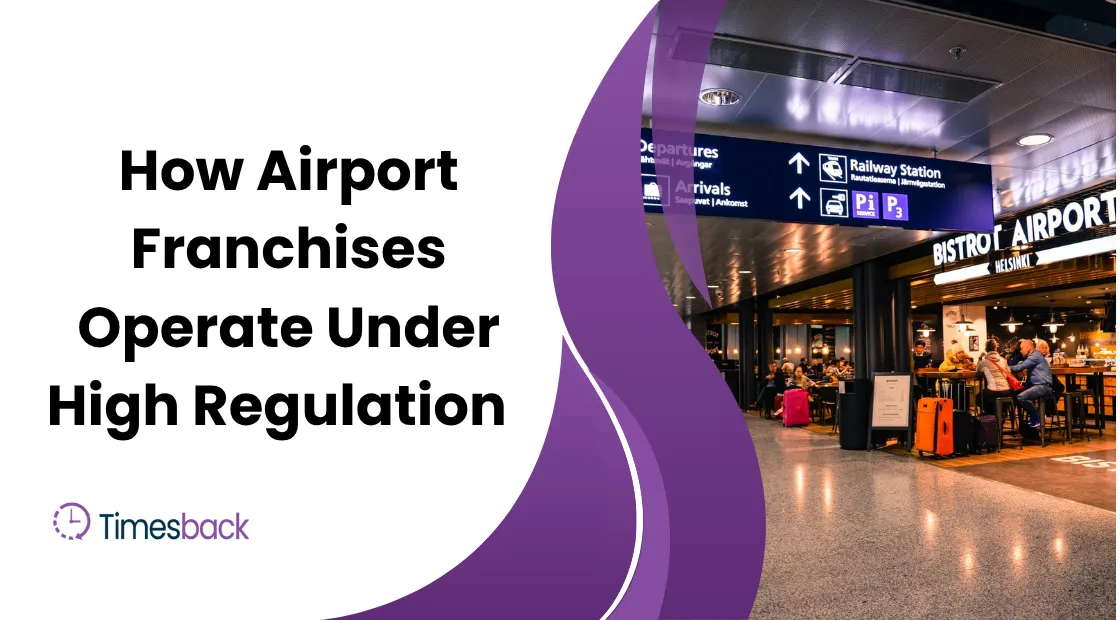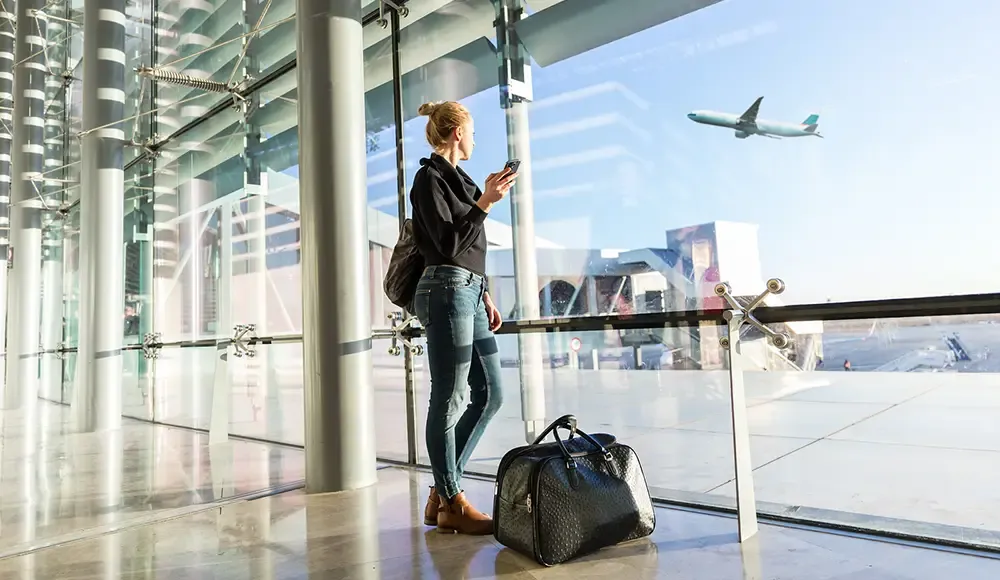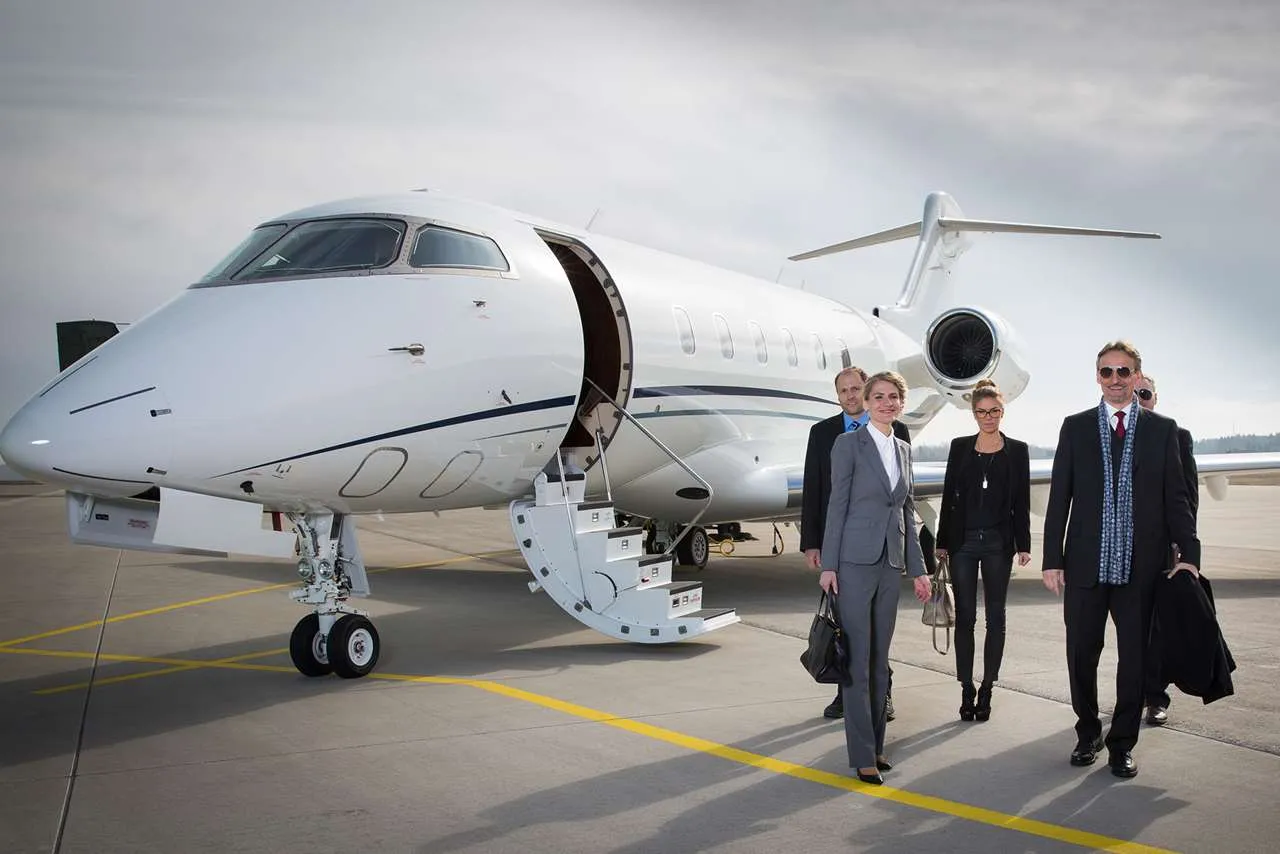机场特许经营在严格监管下如何运作

机场特许经营店在零售业管控最严格的环境之一中蓬勃发展,它们需要在错综复杂的法规中周旋,同时提供无缝的客户体验。
广告
从咖啡店到免税店,这些企业都在机场独特的生态系统中运营,安全、合规和运营限制影响着每一个决策。
与传统零售不同,机场特许经营面临着联邦、州和国际法规的重重考验,但它们通过利用创新、战略伙伴关系和高度专注的运营效率而蓬勃发展。
本文探讨了机场特许经营的复杂动态,分析了它们如何在保持盈利能力和客户满意度的同时适应严格的监管。
监管格局:一场高风险的平衡之战
广告
在机场经营特许经营店就像在暴风雨中指挥交响乐团——每一个动作都必须精准,同时又能适应动荡的局面。
机场特许经营的监管框架是多方面的,涉及运输安全管理局 (TSA)、联邦航空管理局 (FAA) 和美国海关等机构,以及地方机场当局。
这些机构对从员工背景调查到产品采购和定价透明度等各个方面都执行规则。
例如,美国联邦航空管理局 (FAA) 强制执行严格的安全协议,要求所有特许经营员工接受严格的审查,包括指纹采集和犯罪记录检查,这可能会延迟招聘并增加成本。
除了安保之外,机场特许经营店还必须遵守健康和安全标准,这些标准通常比独立零售店的标准更为严格。
例如,餐饮场所要接受当地卫生部门的检查,并且必须遵守联邦政府关于人流量大的环境食品处理的指导方针。
2023 年,机场合作研究计划 (ACRP) 的一项研究发现,78% 的机场特许经营商报告称,他们至少将运营预算中的 20% 用于合规相关活动,这与传统零售特许经营商花费的 10-12% 形成了鲜明对比。
这一统计数据凸显了监管带来的财政负担,同时也突显了这些企业在适应此类要求方面的韧性。
此外,日益复杂的监管规定意味着机场特许经营商必须投资于员工的合规培训。
这种培训不仅能确保员工遵守规章制度,还能让他们做出明智的决策,从而提高运营效率。
战略调整:化制约为机遇
机场特许经营企业如何在如此严格的审查下不仅生存下来,而且蓬勃发展?
答案在于他们能够将监管挑战转化为竞争优势。
以定价为例。
许多机场都实行“街头定价”政策,要求加盟商收取与机场外地点相当的价格。
这可以防止哄抬物价,但在租金和运营成本高昂的环境下,会挤压利润空间。
精明的加盟商会通过优化菜单或产品供应来应对这种情况。
例如,一家名为 SkyBrew 的虚构咖啡连锁店在达拉斯-沃斯堡国际机场运营,它简化了菜单,专注于高利润的商品,如特色拿铁和即食糕点,在遵守定价规则的同时减少了浪费。
另一种适应方式是利用技术简化操作流程。
机场特许经营商通常会在自动化库存系统和销售点 (POS) 平台方面投入巨资,以确保符合实时报告要求。
这些系统跟踪销售情况,监控库存水平,并标记潜在的监管问题,例如过期许可证或不合规产品。
通过利用数据分析,加盟商可以预测出行高峰期,并相应地调整人员配备或库存,从而最大限度地减少监管检查或意外审计造成的干扰。
| 监管挑战 | 特许经营改编 |
|---|---|
| 严格的员工审查 | 实施自动化人力资源系统,以跟踪合规情况并加快招聘流程。 |
| 街头定价规定 | 专注于高利润、低损耗产品,以保持盈利能力。 |
此外,机场特许经营商越来越多地转向本地供应商,以降低合规风险,同时增强其产品供应。
通过本地采购,他们不仅可以缩短运输时间,而且符合社区价值观,从而提高客户忠诚度。
机场当局的角色:合作伙伴还是把关人?
机场当局既是房东又是监管者,这给特许经营带来了独特的动态。
与传统的零售租赁不同,机场特许经营协议通常是短期的(一般为 5-10 年),并且附带严格的履约条款。
加盟商必须达到收入目标,保持无可挑剔的服务标准,并遵守美学准则,以与机场品牌保持一致。
这造成了一种高压环境,未能履行合同义务可能会导致合同终止。
然而,这种关系并非完全是对抗性的。
许多机场当局会提供支持,例如营销计划或共享物流服务,以帮助特许经营商取得成功。
例如,哈茨菲尔德-杰克逊亚特兰大国际机场与其加盟商合作,提供集中式废物管理,从而降低各个运营商的成本。
这种合作方式使机场特许经营商能够专注于客户体验,同时克服监管障碍。
然而,这种平衡很微妙——加盟商必须不断证明自己的价值,才能获得续约或在航站楼内获得黄金位置。
此外,机场当局越来越认识到特许经营的成功对于提升乘客整体体验的重要性。
通过投资特许经营支持,他们创造了一种双赢局面,既有利于机场的声誉,也有利于特许经营商的利润。

客户体验:机场特许经营的核心
尽管监管体系错综复杂,机场特许经营商仍将客户体验放在首位,以在封闭市场中推动收入增长。
旅行者往往压力大或时间紧迫,他们需要速度、质量和熟悉感。
像星巴克或哈德逊新闻这样的连锁品牌利用其知名度来吸引顾客,但它们必须适应机场独特的节奏。
例如,虚构的汉堡连锁店 FlyBurger 在芝加哥奥黑尔国际机场重新设计了其服务模式,优先考虑移动订餐和自助服务亭,将等待时间缩短到五分钟以内——这对赶飞机的旅客来说是一个至关重要的因素。
这种注重效率的做法并没有牺牲质量。
机场特许经营店通常会根据当地文化调整其产品和服务,这种策略被称为“场所感”。
在西雅图-塔科马国际机场,像 Ivar's Seafood 这样的特许经营商会将蛤蜊浓汤等当地特色美食融入餐饮,为旅客打造令人难忘的体验。
这种方法不仅可以促进销售,而且符合机场当局展示当地特色的愿望,加强特许经营商与机场之间的合作关系。
| 客户体验策略 | 对机场特许经营的影响 |
|---|---|
| 移动点餐和自助点餐机 | 减少等待时间,提高旅客满意度。 |
| 本地化菜单选项 | 提升品牌吸引力,并与机场品牌推广目标保持一致。 |
此外,客户调查和社交媒体互动等反馈机制在改善客户体验方面发挥着至关重要的作用。
通过积极征求旅客的意见,机场特许经营商可以快速适应不断变化的偏好并提高服务质量。
压力下的创新:技术与可持续性
创新是机场特许经营的命脉,其驱动力在于既要遵守法规,又要满足旅客的期望。
可持续发展日益受到关注,机场正努力推行环保措施,以实现全球碳减排目标。
加盟商正在采用可堆肥包装、节能电器和减少浪费的计划,以符合这些规定。
例如,在旧金山国际机场,所有餐饮特许经营店都必须使用可堆肥或可回收材料,这一要求刺激了对可持续供应链的投资。
技术也发挥着关键作用。
先进的分析技术可以帮助加盟商预测需求,减少库存积压,最大限度地减少食物浪费——鉴于机场严格的垃圾处理规定,这是一个至关重要的问题。
一些连锁店甚至正在尝试使用人工智能驱动的聊天机器人来处理客户咨询,从而解放员工,让他们专注于服务。
这些创新不仅确保了合规性,还提高了运营效率,使机场特许经营商能够在高成本环境中保持竞争力。
此外,移动技术的融合正在改变特许经营商与顾客互动的方式,通过应用程序提供个性化的促销活动和忠诚度奖励。
这种以技术驱动的互动能够培养客户忠诚度,并鼓励回头客,这在竞争激烈的机场零售领域至关重要。

金融方程式:高风险,高回报
经营机场特许经营权是一项高风险的赌博。
成本很高——主要机场的租金可能是城市零售场所的 10 到 20 倍,而且合规监管还会增加另一层费用。
然而,回报也同样丰厚。
机场拥有数百万固定客源,由于选择有限,乘客往往愿意花更多的钱。
根据国际机场协会 (ACI) 的数据,到 2024 年,全球机场零售收入将达到 $480 亿美元,其中特许经营收入占近 60% 亿美元。
为了实现利润最大化,加盟商必须掌握精益运营的艺术。
这意味着要协商有利的供应商合同,优化劳动力安排,并投资于培训,以确保合规性,同时又不牺牲服务质量。
最成功的机场特许经营者,是那些将监管视为创新框架而非负担的特许经营者。
通过采用技术、可持续发展和以客户为中心的战略,他们将限制因素转化为增长机遇。
此外,战略财务规划对于应对机场运营相关的高昂成本至关重要。
加盟商必须建立可靠的预测模型,以预测客流量的波动,并相应地调整其业务策略。
人为因素:高压环境下的员工
员工是机场特许经营的支柱,但他们也面临着独特的挑战。
受安全法规约束的审查程序可能会阻碍潜在的求职者,从而导致人员短缺。
加盟商通过提供具有竞争力的工资和福利来应对这种情况,这些工资和福利通常高于机场外的竞争对手。
此外,他们还投资于培训项目,以确保员工了解客户服务和合规要求。
训练有素的员工能够成就或毁掉客户体验,尤其是在旅客应对安检和航班延误的压力时。
不妨把这比作走钢丝的人:机场特许经营员工必须在巨大的压力下平衡速度、准确性和友好性,同时还要遵守比小说还厚的规章制度。
这种平衡需要韧性和适应能力,而加盟商正是通过强大的支持系统和清晰的沟通来培养这些品质的。
此外,在这种高压环境下,营造积极的工作场所文化对于留住人才至关重要。
重视员工福祉和职业发展的加盟商通常会获得较低的员工流动率和较高的客户满意度。
展望未来:机场特许经营的未来
随着航空旅行的发展,机场特许经营面临的挑战和机遇也随之而来。
诸如更严格的环境标准和更高的POS系统网络安全要求等新兴法规将继续塑造行业格局。
与此同时,旅行者的期望正在向个性化、技术驱动的体验转变。
投资于数字化转型(例如非接触式支付或人工智能驱动的会员忠诚度计划)的加盟商很可能会保持领先地位。
小型区域机场的兴起也带来了新的机遇。
虽然像肯尼迪国际机场 (JFK) 或洛杉矶国际机场 (LAX) 这样的大型枢纽机场占据主导地位,但区域性机场正在扩大其零售业务,为灵活的加盟商创造了立足之地的机会。
这些地区的监管通常较为宽松,从而在运营和品牌推广方面提供了更大的灵活性。
在瞬息万变的环境中,机场特许经营企业需要具备哪些条件才能保持竞争力?
答案在于他们能否在应对复杂的监管环境的同时,不断适应、创新,并将旅客体验放在首位。
通过将合规视为创造力的催化剂,这些企业即使在监管最严格的领域也能继续蓬勃发展。
| 新兴趋势 | 加盟机会 |
|---|---|
| 可持续发展指令 | 投资环保包装和节能设备。 |
| 体验式零售 | 引入快闪店或互动展示来吸引旅客。 |
结语:超越限制
机场特许经营业务在一个每个细节都受到严格审查的环境中运营,但它们仍然能够为旅客和机场当局带来卓越的价值。
通过战略调整、技术创新以及对客户满意度的不懈追求,他们将监管挑战转化为增长机遇。
经济回报丰厚,但要求也很高——需要具备韧性、创造力和卓越的运营能力。
随着航空旅行的不断发展,机场特许经营商需要保持灵活,接受新技术和可持续的做法,以满足监管要求和旅客的期望。
这些企业之所以能够脱颖而出,正是因为它们能够精准而富有创造力地驾驭这种高风险的环境,从而确保它们在全球旅游生态系统中继续发挥至关重要的作用。
